Contrast to Türkiye: Greeks do not expect much from elections
In the weekend between the two presidential election rounds in Türkiye, the Greek neighbours are voting for their new government. They don’t have many expectations but hope for the best for them and Turks. A visit to the border region.
Feres is a small border village with around 5000 inhabitants. Only the Evros river separates it from Türkiye – and an iron wall. Greece started building it in the last years to prevent refugees from crossing unlawfully into the country. It has been one of the promises shortly before the election to extend the wall.
Exactly at this border wall in between flowers and long grass a herd of cows is walking behind their farmer. Simeon Xalamanbidis who is seeing the wall daily walking with his 50 cows seems not impressed by it at all. “I have always been here,” he says, more precisely since about 50 years, “I am a shepherd, I can also go to the forbidden zone.” One would need a permit to be here, he adds. He shakes his head about the question if the wall helped keeping the migrants away: “If they cannot cross here, they come through somewhere else where there is no wall.” But he himself did not have any unpleasant experience with the people coming to the area on irregular routes.
Some facts about the Greek border with Turkey
arrivals by land in 2022 (source: UNHCR)
arrivals by land in 2023 (as of 14th May)
kilometers of border wall
kilometers more are under construction
kilometers more are planned until 2026 (source: AP News)
Only some minutes away the small town of Feres seems as untouched as the farmer by the huge wall in its neighbourhood.
Between Germany and Greece
Dimitrios is drinking a beer with a friend at the central square. For the sice of the village, it is surprisingly populated with various cafés and restaurants lining up here. Dimitrios had been living in Germany for several years before he came back to his home country; like many others. “I could not stand it there anymore”, he says. At the same time he points out advantages of Germany that Greece is missing. “If someone loses his job here he only receives support for the first couple of months. After half a year he is left to himself”, he explains. Germany instead would have social support for the unemployed.


Another big problem he names is unemployment and lack of chances for young people. Being a social worker for the youth in a project funded by a German organization he knows their needs and worries well. “This area has nothing to offer for them”, he says; although a new school building was opened in 2021. Asked about the young people – mostly men – in the other restaurants around the center of the village he explains that these are, in fact, conscripts spending a couple of weeks in the border area at the barracks for training. “In the past, they spent much more time here, were actually stationed here”, he says.
Nowadays, many young people would try and find ways to avoid joining the army so less and less young people would stay here. Hence, the local gastronomy sees far less visitors.On top, the Covid times were showing consequences: after the strict rules and restaurant closures guests had not fully come back.
Frustration of the population of all age groups
The next morning in the same small town. Anna and Stauroula are going home from school in the late morning on Thursday; exams coming soon their schedule is not having many lessons anymore, they explain. Sunday will be their first-time voting – they both turn 17 this year. They do not have high hopes for bigger changes after the election; but they will go to vote. “Of course!” Even though their school is close to the border they say that neither the wall nor refugees or migrants are having an impact on them.
Anna says that she wishes for a better environment for young people in the area: “Our school is good, but in general, we need better options for education.” She thinks, there is not enough support for young people in the area. She herself wants to become a make-up artist after school, Stauroula dreams of becoming a singer; both professions are unlikely to offer a perspective in their home town. Even though they will be voting for the first time this year there school time is not finished yet. It is one more year ahead of them.


The lack of opportunities is something, which also bothers Iannis Tsardidis. The 64-years-old demands more jobs for young people. “Young people go in the big cities or abroad to Germany or France like my daughter,” he says. Everything needed for a good life exists in Feres, he is convinced – just a way to make some income was missing.
Although it is not visible around Feres, the Greek economy has developed quite well since the big crisis in 2011. The GDP is increasing, the inflation rate lower, but some issues remain unsolved:
- GDP increased by 8.4% in 2021 and 5.9% in 2022 – still, the GDP is much below its status of 2010.
- With 5.4% the inflation in Greece was lower than in other EU countries in 2022.
- Greek economy is not stabilized in all its branches.
- Important steps were made against “black labour” and the pension age was raised.
- The unemployment rate is still one of the highest in EU. More measurements need to be established in this matter.
- Read more: Wirtschaft in Griechenland erholt sich – iwd.de
Tsardidis sits in one of the cafés watching the teenagers rushing to the square to take a drink after a short school day. In his location mostly elderly men, are sitting and chatting at its small tables, drinking coffee and greeting others passing by on the narrow street. When he finds out his interlocutor come from Germany, he takes his phone and calls a friend with whom he shares his name: Iannis Koulkovinis worked in fabrics in Braunschweig for almost 40 years until he returned. His children still live in Germany and France.
Living between countries
Koulkovinis’ family seems to be attracted by borders. Back in Ottoman times, the parents of the 86-year-old moved from the Turkish side to the Greek, before the border was drawn into the map. When he lived in Germany, the back then divided country had a wall just some kilometers away from Braunschweig. Nowadays his daughter enjoys the benefits of the European Union and its open borders, living in Kehl and her husband working in Strasbourgh, the neighboring city in France. The only disadvantage he can think of are the conflicting school holiday times of both countries which is why they would visit him now and not during summer times.
But the border being built to Turkey is nothing, which can be compared to the German, he insists. It is still fluid, as Greeks and Turks can cross it quite easily.
You should look at Cyprus. That is a border; it is like South and North Korea.
Then he admits that he needed a permit to enter the restricted border area in his village. With his friend, Iannis Tsardidis, he is going fishing at the Evros river occasionally. “One has to get this permit by police if he wants to enter the border area”, he explains and advises the reporters to also approach police before visiting that part of the country. “It is for your safety”, he adds, “it can be dangerous there.”
He explains that it is not because of the migrants crossing the border but because of the smugglers leading or better driving them across. If they were chased by military or police they would not care if it costed any lives – they would just try and get away: “They do not care about people, they do not care about anything but earning money.” He implies that people have died in the past due to such events.
Mistrust and abuse of information
Koulkovinis describes himself as a regular citizen showing the current issue of the local daily newspaper and says that many citizens did not know where to find reliable information. In Germany, he was used to having a bigger selection of print newspapers, he says. “Here, people are also interested in reading reliable news, but they do not know where to find them: They are careful,” he says. Also in his opinion, one should be careful in this region when choosing who to talk to about which topic.
Especially the Muslim Greek community, he says, were politically used for upholding the historical hostility between Türkiye and Greece by Türkiye – not the people but the politicians – spreading false news about them. In fact, they would be living as Greek citizens with simply a different faith in the country, there would not be any of the problems. Turkish politicians and state-run media kept spreading false information about them.
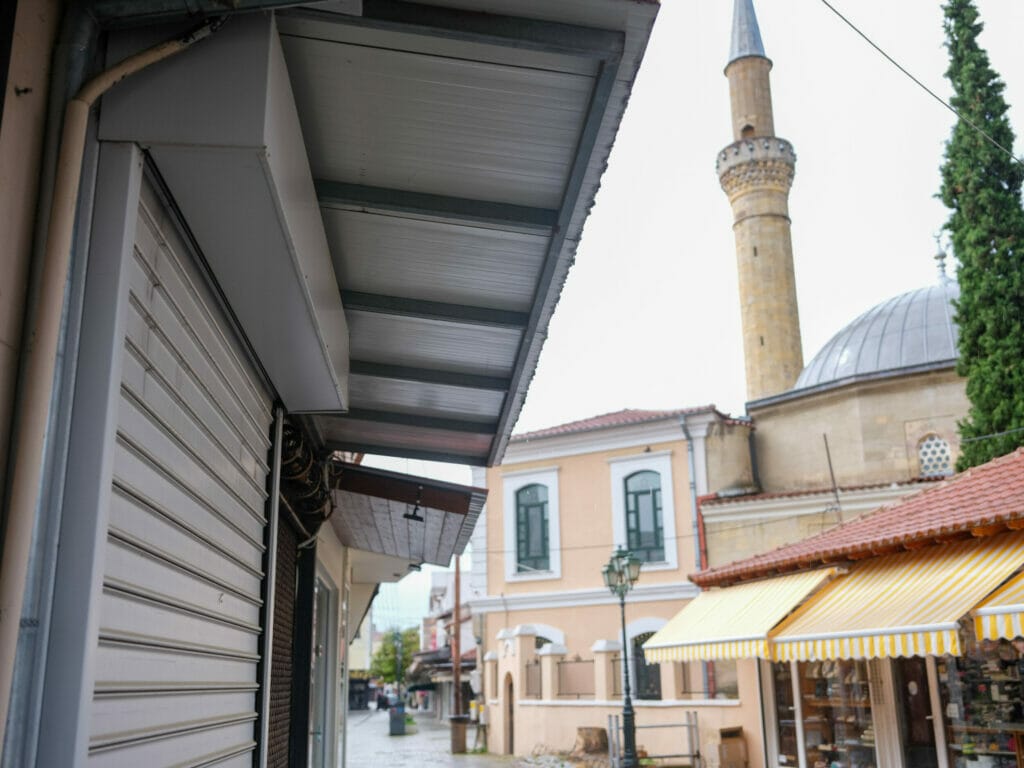

Good to know
Greek people are one of 30 countries worldwide where it’s mandatory to vote. Nowadays, it stays unpunished if one does not vote.
Turnout at national elections is low: a mere 56.6% at the 2015 election and 57.9% at the 2019 election.
Greece is also an exception when it comes to voters’ age. From the age of 17 Greeks are entitled to vote including those who turn 17 during the election year.
When being asked about the relationship to their Turkish neighbors, one sentence can be heard often: “We are all the same. There is no difference.” The closeness between the peoples can even be seen in the language – for example, the Greeks here use the Turkish word “bahçe” for “garden” instead of the Greek term “κήπος” (kipos), another one explains. “In Germany when working in a factory, I spoke more Turkish than Greek, so everyone thought I was Turkish and sometimes I just acted as one,” Koulkovinis looks back to his younger years and smiles. Being multilingual the 86-year-old likes to inform himself well, so he also dares to comment on the current elections. “I do not support Erdogan’s politics,” he says, “but I think the opposition would not know how to lead the country. It could destabilize the region.”
But already with the current government Türkiye affected the region, he adds, and his friend confirms: “They keep invading Greek airspace with military planes.” Then both of them point out that they never had any issues with Turkish people. “All the conflict is politics”, they both agree. Tsardidis has friends across the border and also uses to go shopping there, he says. Like him, many Greeks go to Turkey for shopping and refueling the car. On the other side, Greek restaurants or the branch of a German supermarket chain are welcoming Turkish guests.
The many problems of Greece
For the election his big topics were domestic, he describes. The railroad system – especially since the tragic train accident in Tempi some months earlier – the health system, and especially the financial situation of Greece. “It affects everyone: employers, employees and also pensioners”, he says being himself part of the last group at the age of 64. But he also adds: “I think this is not a specific problem of this region and I am sure, in Türkiye the situation is worse.”
Due to the situation without many perspectives young people were leaving the area: “Only old people like us are staying.” He sums up: “Nothing is functioning well here.” His own daughter has been living in Paris for 6 years, he proudly shows the photo of her business card and his own picture in front of the Eiffel tower. “For young people to stay it needs jobs, the chance to make a comfortable life in here,” he says. The government should focus on this, but they would not care much about the remote area far away from the big cities.
Muslim, but Greek citizen
In the Alexandroupolis Region, some 50 kilometers west of Feres and the border to Türkiye, many mosques can be seen along the roads, some of them placed very closely to orthodox churches – symbolizing the common everyday life of Greek citizens with different religions as Koulkovinis described. From Ottoman times a Turkish speaking a Muslim community remained in the region. Salih Dalli is one of them – living in the village of Aratos, around 80 kilometers from the border to Türkiye. He walks out of a small shop. His hands and fingers are big, they look swollen and are dirty from oil. A proof of his hard work with iron.


As a Greek citizen he does not want to comment on the elections or the political situation in the neighboring country, where his family has its origins. However, it is obvious that he enjoys the system he is living in; although it is far from perfect. “We are living in freedom,” he says. There were no problems at all with the Greek-speaking, Orthodox people. Problems were rather created by politicians trying to divide the society.
Good to know
Some 140,000 Muslims lived in Western Thrace, the North-Eastern region, according to the census in 2011. This made about 30% of that area’s population Greek Muslims who had been the majority of this region in the past (Turkish minority population in Western Thrace fell from 65 per cent in 1920s-level to half, report says | Daily Sabah). Additionally, more than 500,000 Muslims, mainly asylum seekers and migrants, resided in the Greece in 2017. Half of them in Athens.
However, Dalli does not think anything will change for his community after the elections this Sunday. He complains that there are no teachers anymore to teach the children the Turkish language in schools. In the past, they had been there. “At first, such things are okay. And after 20 years it changes”, he says and adds to wonder if mosques might be an issue in some years, too. “I don’t think that anything will change to good,” Dalli says frustrated.
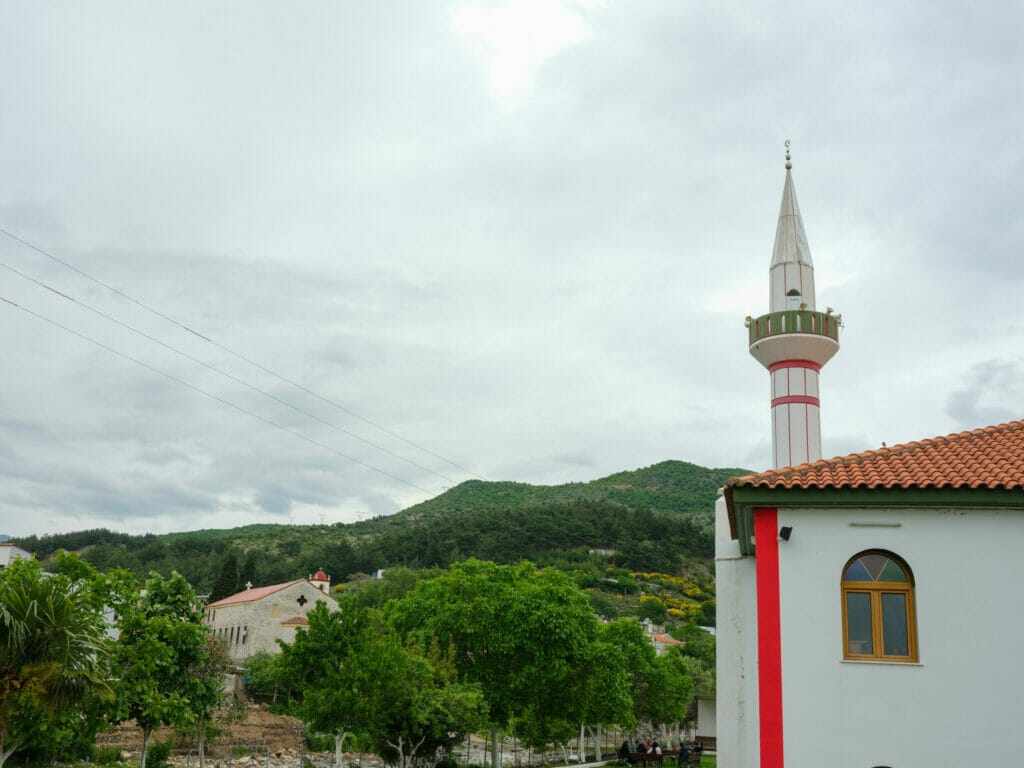

Discrimination from institutions – not by law but still visible – for Turkish-speaking people was going on for decades. He felt it after he had studied in Türkiye and Greece did not recognize his degree. He shows his hands: “So I have always worked as a mechanic.” But even if he thinks this politics will not change, he will go to vote. “Of course, I am Greek citizen,” he says. He hopes that the whole society will benefit from a better future. With Millions of Greeks living and working abroad, a new government should put more efforts into creating jobs and opportunities within the country, he insists.
The problem of migration
The town of Alexandroupoli (Turkish: Dedeağaç) itself, located some 30 kilometers south-west from the border. Hrisanthi Apozidou is sitting on a bench with a friend, eating some cake and enjoying the view on the Thracian Sea (Trakya Denizi), altough the sky is cloudy and the wind feels cold. She doesn’t have any issues with Turkish people but with the government ruling them, she says. “It brings us hostilities,” she criticizes. This would cause hatred on both sides – on a political level. In the Agean, it further led the Greek government to exploit its natural resources and start extracting oil there. “This is why wars are being waged,” she addresses her fears of an an escalation of the disputes.
Another topic many Greeks care about in the relations with Türkiye are the refugees crossing into the country. “They are sending too many people here, they are dealing with human souls,” Apozidou says. The wall helped to reduce the number of crossings in those areas but led to new routes evolving. “They always find a new way – by the sea or via Bulgaria,” she explains and asks for a European solution und consequent deportations of those who don’t have a legal reason to stay.
A better life for everyone
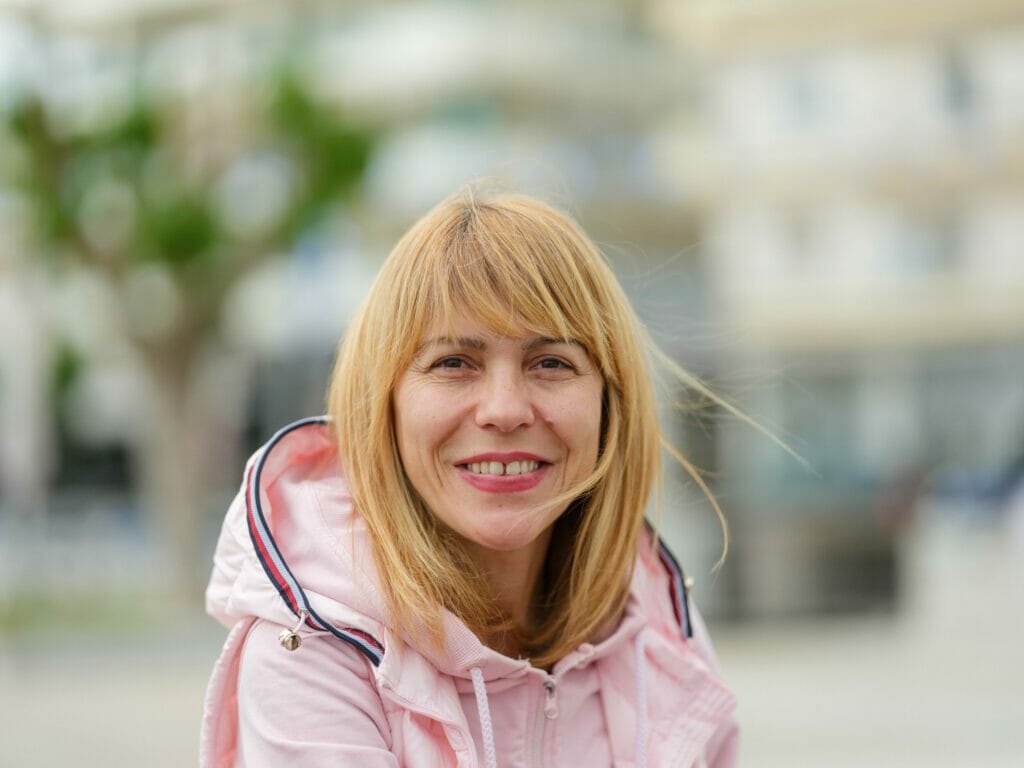

For the elections in Greece she has clear expectations. “Better services for the people, equality, better education and more democracy,” Apozidou demands. Especially during the Covid pandemic according to her many suffered from the hard restrictions: Elderly people had to pay fines of up to 100 Euro a month if they were not vaccinated. Then, last winter, many people had not enough money to heat their apartments due to increasing prices. “This was not democracy,” she says, recognizing that the situation got much better nowadays. Seeing people smiling again brings her a lot of joy, for too long she had not seen it.
Apozidou says she is optimistic, that there will be further improvements in her country and has not lost her trust in democracy after all. “We are the founders of democracy. The whole world got to know the polity of our Republic and this is great,” she says. All Greeks and all people in the world deserve better, she says, so this is what she wishes for everyone’s future.
Further towards Thessaloniki in Kavala, a town worth a visit for tourists between mountains and the sea, Hektor1We changed the name as our interview partner wanted to remain anonymous. runs a small coffee shop. He is happy about the fact that not many posters and advertisements for the upcoming elections are present in the city and the region. “It became less and less over the years; I think, this is a good development”, he says. The statements written on such posters were all lies anyways: “So what’s the point?”
He is convinced that most of the parties were just telling stories to win and then not keep their promises: “They are all lying.” Hektor describes the parties of Greece ranked from liberal and capitalist to claiming to be socialist but not really being socialist. Nevertheless, he will go to the election to vote for a party. “I will give my vote to the communist party”, he says. To his knowledge, the KKE was the only true communist party currently present to vote for. Also, they were the one party in Greece that actually acted instead of talking. “They support the working class, they are on the streets with them.” So, he hopes for them to gain more influence. “But I do not want them to actually govern the country”, he adds.
Good to know
In the elections in 2019, KKE had 5,3% of the votes. This gave them 15 seats in the parliament with 300 members.
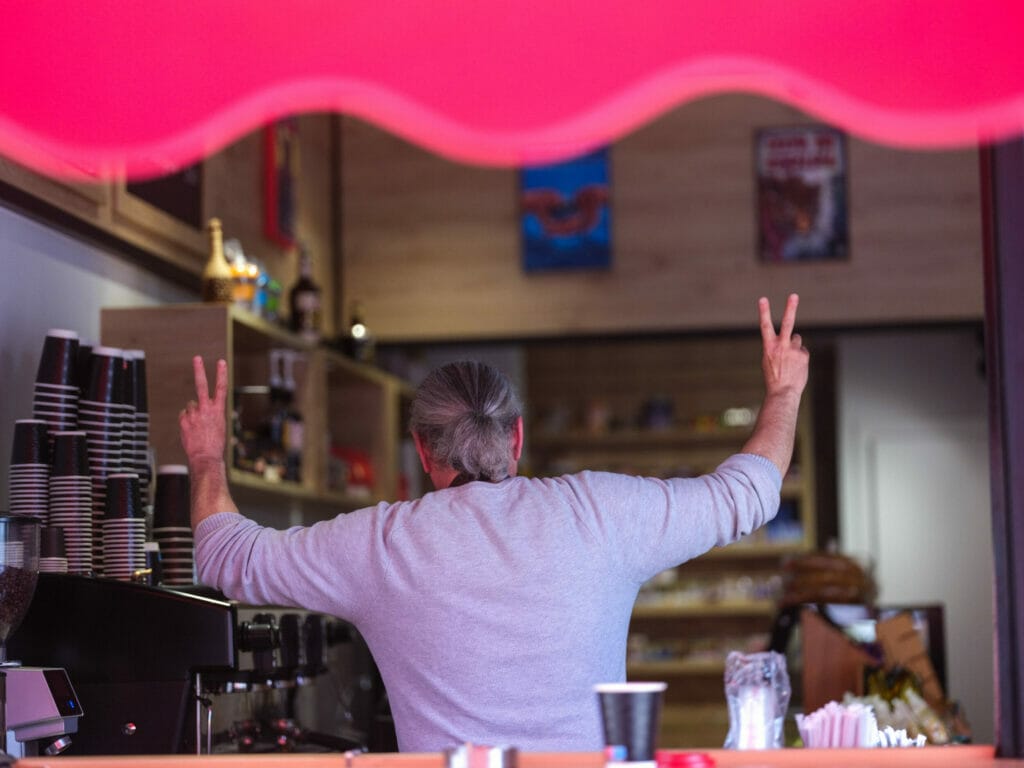

A strong communist party in opposition could have a positive impact for the working class, putting pressure on the government, Hektor assumes. But not more. He hopes for them to become strong enough to influence the country’s politics but he would not want them in the ruling position. “It is not good to be one single communist country, we would get crushed”, he says, being surrounded by capitalist countries. Türkiye, he says, even had a worse version of it than Greece but the general problems were the same in both countries. And anyways, the KKE winning so many voters would be “pretty much science fiction”. What both countries share as well is the struggle to cope with the large numbers of people asking for protection and demanding a better life – and a lack of international support and co-operation. The café owner says that the KKE was the only party not agree-ing with pushbacks and such so also the refugee issue would be solved differently if they had a say in it.
Dialogue for peace
Also back in Feres the hopes are there for different solutions. “We wish peace and that problems will be solved with dialogue and not threats,” says Iannis Koulkovinis, looking at the elections in Turkey and the hostilities of the recent years. In general, he thinks that dialogue is more effective than protests. “Regular people of both sides of the border are talking to each other, politicians follow their example”, he says. This could support a peaceful togetherness for the future. The history of the border area was difficult enough, he adds, and does not want to go into detail.
Footnotes
- 1We changed the name as our interview partner wanted to remain anonymous.
Vorgeschlagene Beiträge
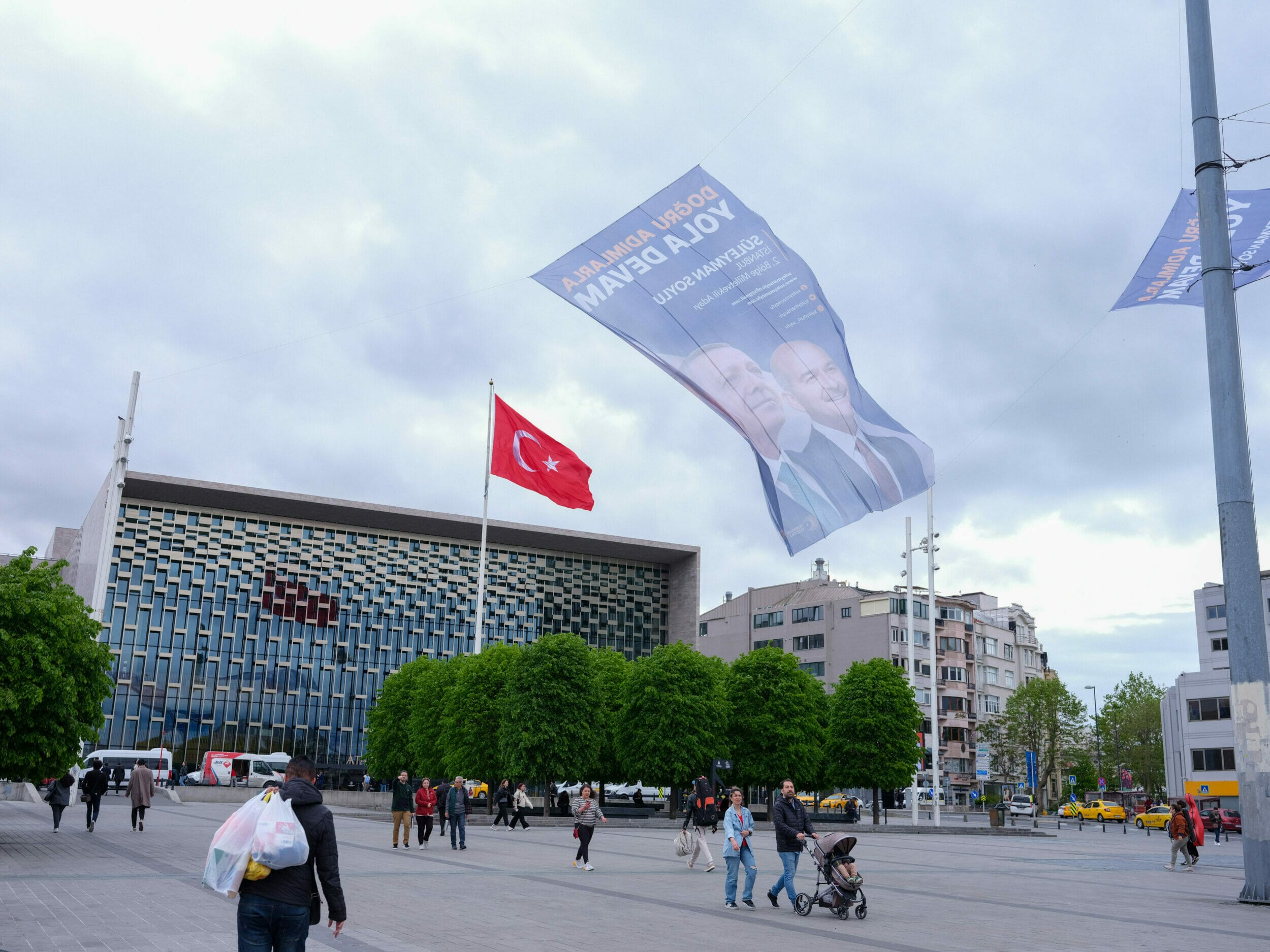

Social policy specialist on elections in Türkiye: “Society has become highly polarized”
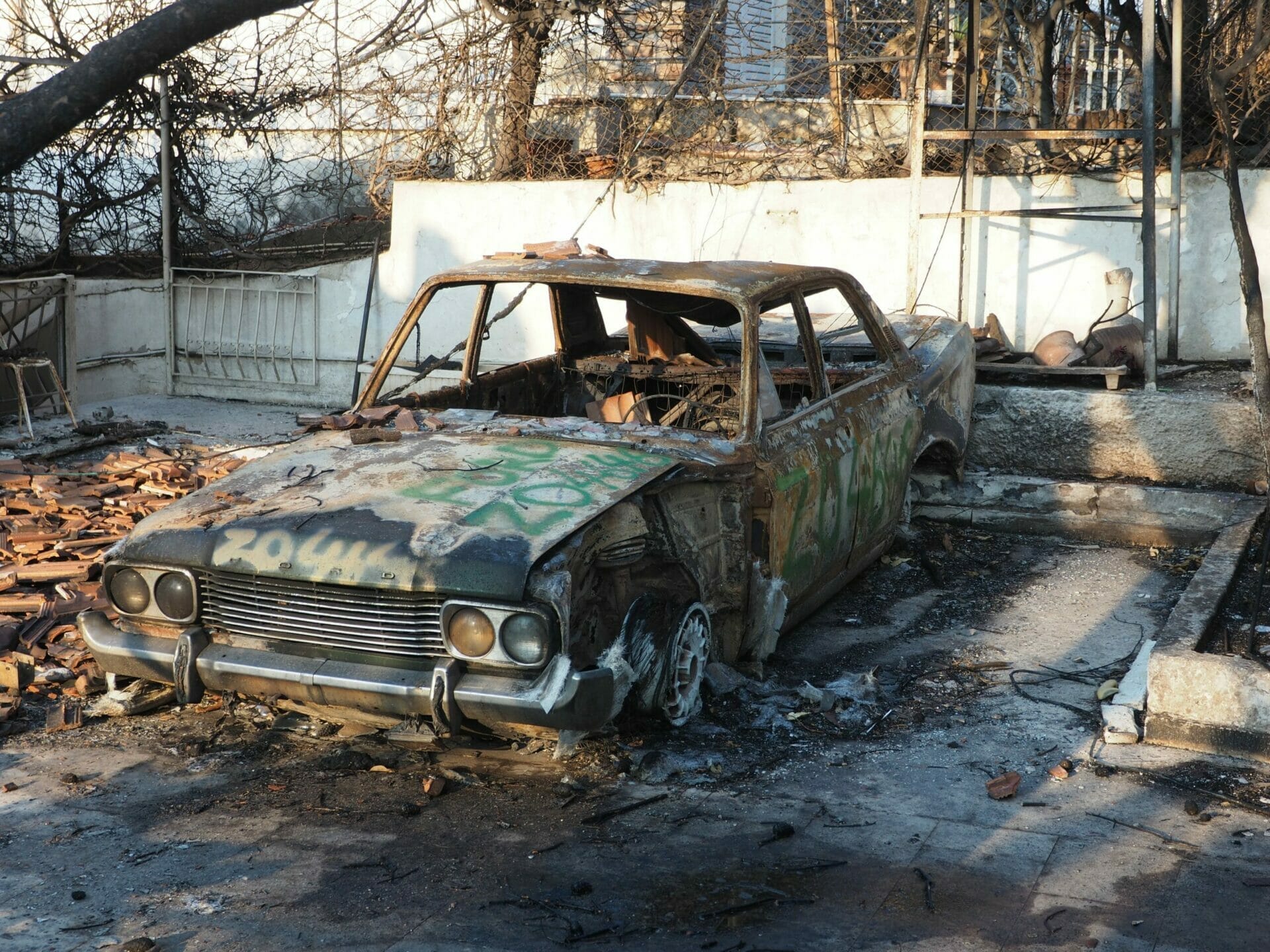

Wildfires in Greece: Life after the paralysis
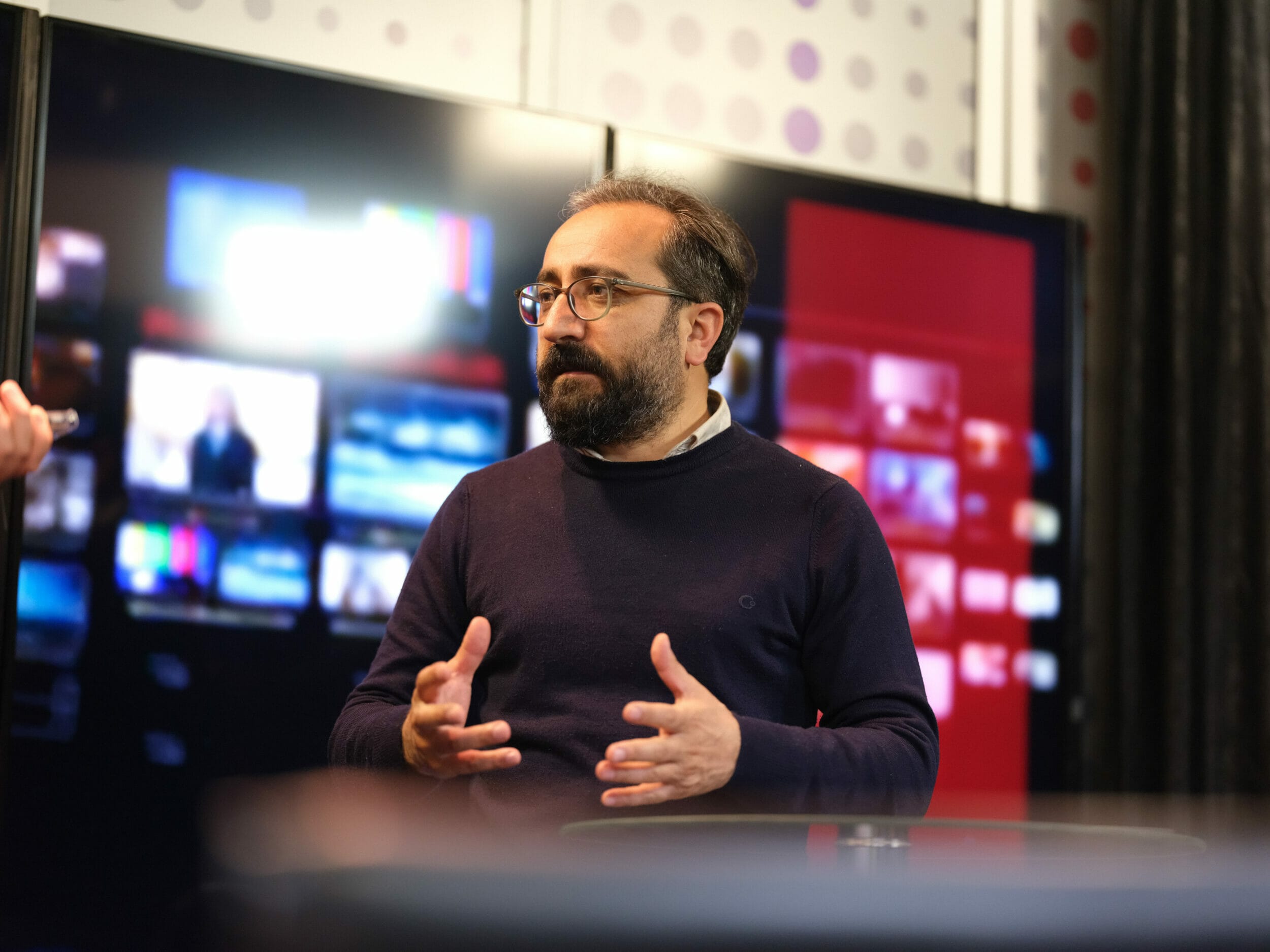

Journalism in Turkey: Facts vs. Propaganda and AI
[mc4wp_form id=239488]
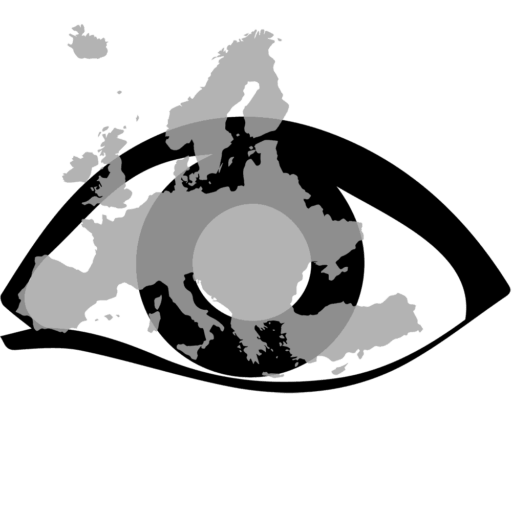



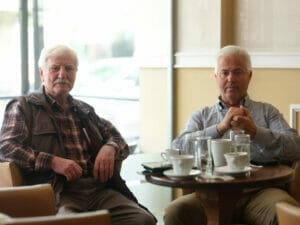
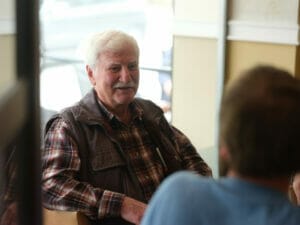
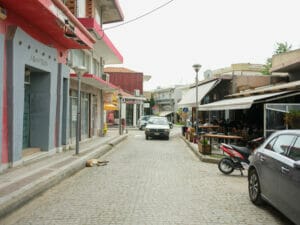
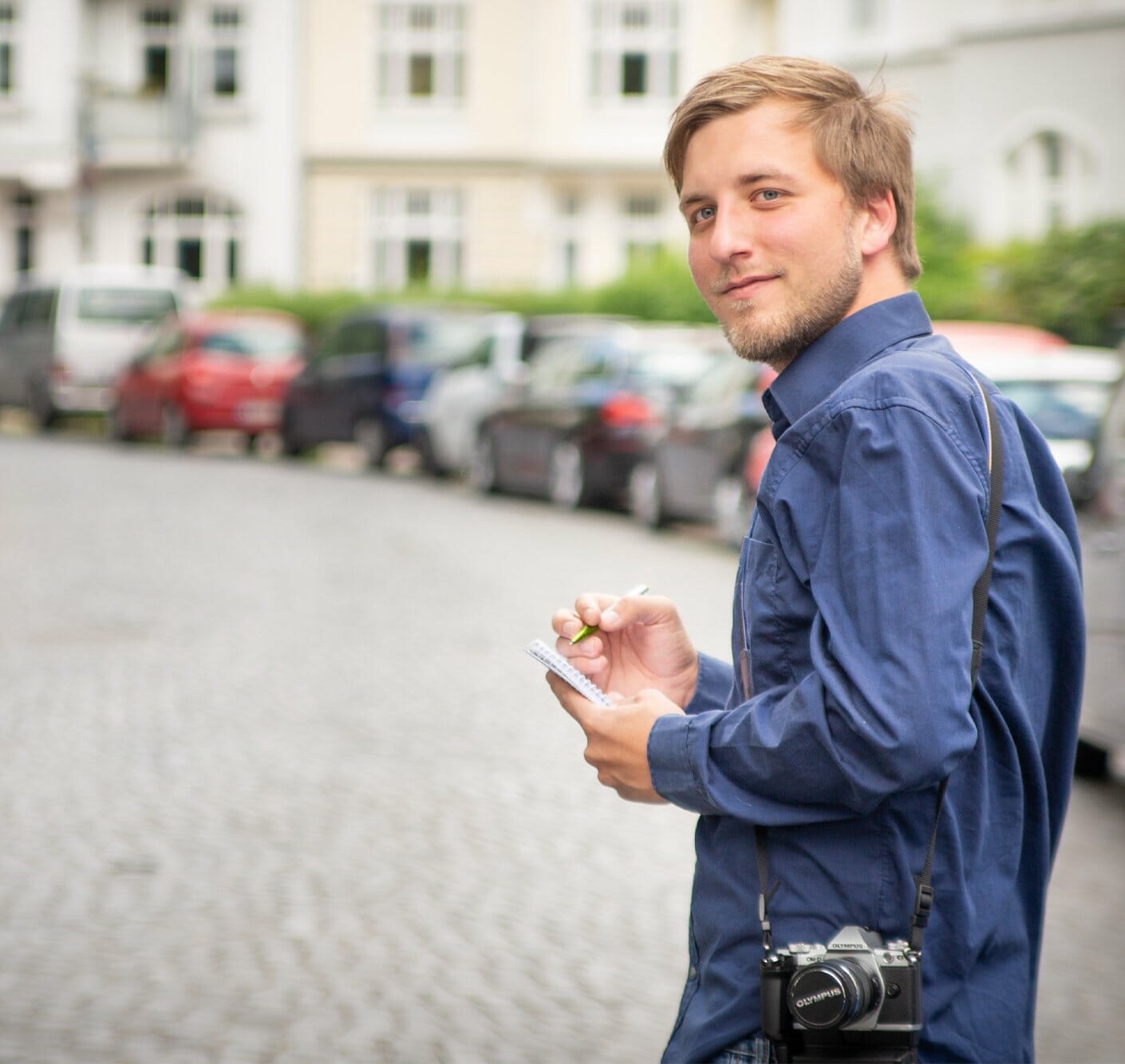
Leave a Reply
You must be logged in to post a comment.